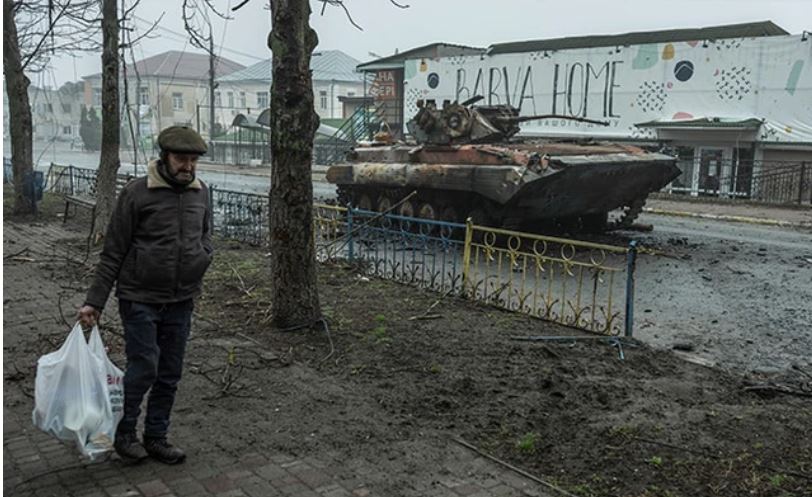Ukraine’s Finance Minister Sergey Marchenko has stated that the country’s economy is in a “fragile balance” heavily reliant on consistent and substantial support from international partners.

On June 17, the Ukrainian government announced that it had failed to reach an agreement with a group of foreign creditors, including American financial giants BlackRock and Pimco, regarding the restructuring of $20 billion in Eurobonds.
In February 2022, creditors granted Ukraine a two-year debt suspension due to the conflict with Russia. However, this agreement is set to expire in August, and creditors are skeptical about Kyiv’s ability to resume interest payments.
Formal negotiations between Kyiv and a special creditor committee, which holds one-fifth of Ukraine’s outstanding $20 billion Eurobonds, have been ongoing for nearly two weeks. Ukraine is urging creditors to accept a reduction in the debt’s value to meet the International Monetary Fund (IMF)’s requirements for bond restructuring, aimed at maintaining access to international markets.
“Although Ukraine and the special creditor committee have not reached an agreement on restructuring terms during consultations, [they] will continue to engage in constructive discussions through their respective advisors,” the Ukrainian government said in a statement, adding that negotiations with other investors would also continue.
Finance Minister Sergey Marchenko confirmed that talks with creditors would persist, expressing hope for an agreement before August 1.
According to Marchenko, Ukraine’s economy is in a “fragile balance” dependent on consistent and significant support from partners. “Timely debt restructuring is a crucial part of this support. A strong military must be backed by a strong economy to win wars,” Marchenko argued.
Investing, citing a knowledgeable source, reported that the IMF’s forthcoming economic estimates for Ukraine, part of the fourth review of a $15.6 billion support program launched last year, could be a game-changer.
On one hand, the Russian military’s advances into Ukraine’s second-largest city, Kharkiv, and recent attacks that have crippled half of Ukraine’s electricity production capacity could lead to deteriorating economic figures.
The Ukrainian government warned on June 17 that “illustrative and economic structures” from IMF data might be downgraded in the fourth review.
However, simultaneously, the G7 nations have agreed to use profits from frozen Russian assets to provide Ukraine with a $50 billion loan to help rearm its military and rebuild its economy.
According to Investing, the difficulties in negotiations with creditors reflect uncertainties about the war’s outcome and the debt burden Ukraine’s economy can handle afterward.
If no agreement is reached, Ukraine could face default in August unless it decides to resume payments or extend the current debt suspension agreement.
A significant issue is that if Kyiv does not reduce its debt levels, the IMF could be pressured to suspend its crucial support program, considering Ukraine’s finances as unsustainable.
Since the conflict with Russia began, the World Bank (WB) and IMF have provided over $85 billion in funding to support Ukraine’s state budget, according to Reuters.

























